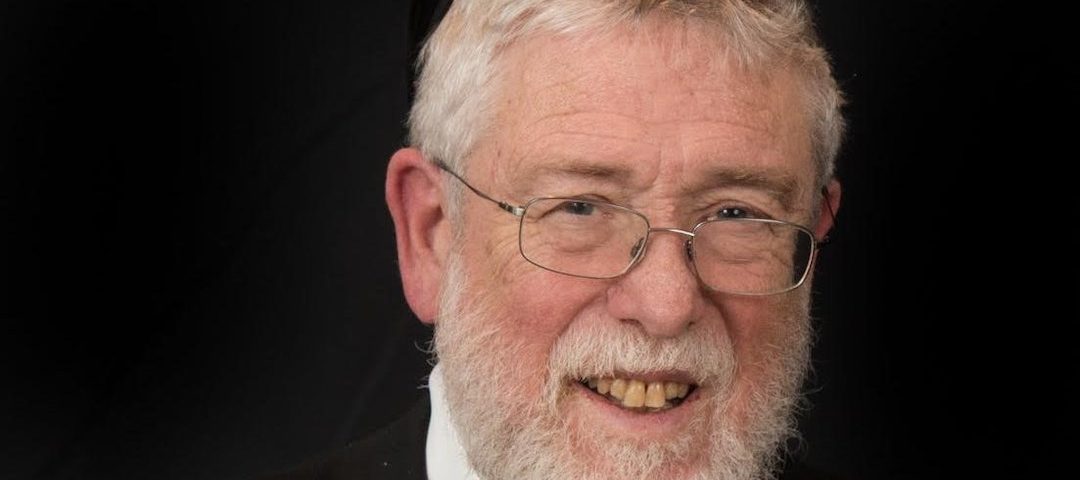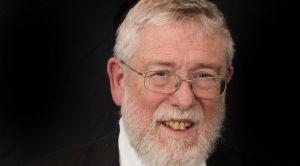Professor Mark Steiner: In Memoriam

Professor Mark Steiner: In Memoriam
David Shatz and David Berger

Mark Steiner z”l
Mark Steiner z”l, Professor Emeritus of Philosophy at the Hebrew University, passed away shortly before Passover from the COVID-19 virus, at age 77.
Mark possessed a mind that was as versatile as it was penetrating, as capacious as it was deep—together with a religiosity that was profound and authentic. In Mark Steiner, a world-class philosopher co-existed with a meticulously observant yere’ shamayim with a fierce, life-long commitment to talmud Torah. He periodically sent hiddushei Torah to friends and relatives, and published at least one in a Torah journal. After once sitting shiva, he observed that during that week, his home was an Israeli sociologist’s dream, with visitors ranging from secular professors on the extreme left to haredi rashei yeshiva.
Two vignettes that touch upon his devotion to Torah study, one of which also illustrates his devastating wit, emerge out of his interaction with one of us (David Berger), and so we switch to the first person singular in the following two paragraphs:
When my wife and I lived in Washington Heights in the late 1960s, a young talmid hakham who was a friend and a fellow basketball fan asked if he could come to my home to watch an important game. I replied that I had a chavruta with Mark Steiner but that we could stop a bit early to watch the fourth quarter. The visitor arrived at the appointed hour. As we closed the Gemaras, Mark said, “I guess it’s alright.” “After all,” he continued, looking at the carpet, “This is not a road.” “And,” he went on, looking at the television, “this is not a tree.” (For those who do not immediately catch the reference, see Avot 3:7; in some versions 3:9.)
Decades later, in the Acknowledgments section of a book where I thanked Mark for his help, I wrote, “To see a difficulty in a rabbinic text yield to the onslaught of Mark’s brilliant and tenacious intellect is to experience the millennial Jewish engagement with Torah at its highest level.” When I translated the book into Hebrew, Mark categorically forbade the inclusion of this sentence. With considerable reluctance, I informed readers of this prohibition and referred them to the English.
A graduate of Salanter Yeshiva, Yeshiva University High School, Columbia University, and Princeton University (where he earned his Ph.D), and a Fulbright fellow at Oxford, he also attended Yeshivat Kerem B’Yavneh at a time when learning for a year in Israel was a rare choice for Americans. He was active in the organization of college students known as Yavneh, and gained a measure of renown for his wry, immensely enjoyable, and perfectly precise layning of Megillat Esther. His musical talent was so impressive that a piano teacher encouraged him to aim at a career as a concert pianist. He was warm, gregarious and, as we have seen, blessed with a wonderful wit.
While Mark earned his international reputation in academia as a specialist in philosophy of mathematics, philosophy of science, and the thought of David Hume and Ludwig Wittgenstein, what is of special interest to readers of TRADITION is that in the last decades of his life he contributed to Jewish philosophy while continuing to cultivate his other specialties.
| Read Mark Steiner’s “The Transformation of Contemporary Orthodoxy: Another View,” TRADITION (Winter 1997) – a response to Haym Soloveitchik’s “Rupture and Reconstruction” |
Even before this transition, he taught courses on R. Yisrael Salanter. In an article titled “Rabbi Israel Salanter as a Jewish Philosopher” (Torah u-Madda Journal, vol. 9), he showed that even though R. Yisrael would have resisted being called a “philosopher,” due to the term’s associations, he provided solutions to hoary philosophical puzzles like weakness of will and the nature of humility. These solutions, Mark maintained, were deeper than those given by philosophers.
In the past few years he turned to the study of Maimonides and his Islamic milieu. In an article in Iyyun: The Jerusalem Philosophical Quarterly (of which he was editor), “Philosophy and Subphilosophy in Maimonides,” he analyzed aspects of Rambam’s metaphysics and his conception of avodah zarah, and entered the famous scholarly controversy over whether the philosophical views in Mishneh Torah are different from those in Moreh Nevukhim. In the last article that was published in his lifetime, he brought together two worlds in which he functioned, relating Maimonides to the eighteenth-century Scottish philosopher David Hume on the topic of imagination and possibility. (Mark authored the introduction to the recently-published Hebrew translation of Hume’s A Treatise of Human Nature.) In a forthcoming article to be published in a Festschrift for his brother, the renowned linguist Prof. Richard Steiner, he scrutinizes Rambam’s use of terms for certain categories of sinners. This is one of several studies of Maimonides that he was preparing in his final days.
Among other Steinerian writings of interest to this audience is a meticulously researched excursion into linguistics in which Mark defended “besmedresh pronunciation” against the mockery to which it has been subjected. Perhaps most impressive is a commissioned three-volume translation from Yiddish (!) of philosophical writings by Rabbi Reuven Agushewitz, a singular talmid hakham, author of hiddushim on Bava Kamma, who was an autodidact in philosophy. Mark thought highly of R. Agushewitz’s incisive intellect, and his introduction to an excerpt in Torah u-Madda Journal vol. 11 (“Philosophizing in Yiddish”) is a prime example of his humor, as he depicts getting used to his newfound translation enterprise and illustrates the joys of the author’s Yiddish.
Finally, it must be said that Mark’s “secular” work has profound implications for TRADITION’s readers. His book the Applicability of Mathematics as a Philosophical Problem, published by Harvard University Press, strives to show that the view known as “naturalism” cannot explain scientists’ discoveries of laws of nature. A careful study of the process of discovery, he argued, shows that the universe is not indifferent to human beings; on the contrary, it is user-friendly to human cognition, and this fact cannot be explained by naturalism. While he felt that the explicit affirmation of religious conclusions would engender unwarranted resistance to his argument in some philosophical circles, the discerning reader understood what a philosopher at the Hebrew University has just written about the book’s thesis in a tribute. “The applicability of mathematics provides strikingly new support for divine grace.”
Mark’s career and persona were themselves an instantiation of divine grace.
ה’ נתן וה’ לקח יהי שם ה’ מבורך
Sample some of the writings of Mark Steiner on his Academia profile.
Professors Shatz and Berger, of Yeshiva University, are longtime members of TRADITION’s editorial board.
[Published on May 10, 2020]

1 Comment
I graduated Salanter Yeshiva and Yeshiva University High School(MTA) with Mark. I would like to share with you his bio from the 1960 Yeshiva H.S. yearbook, Elchanite.
“President,National Honor Society; Editor-in-Chief, Elchanite; Captain, Mathematics Team: Assosiate Editor, Hatchiah: Chess Team; Intramurals;
Publications: Committees.
Yeshiva has always prided itself upon the excellence of its students and upon the many distinctions which they have achieved. During the past four years no one has done more to perpetuate this heritage than Mark Steiner. Mark has always excelled as a student both in Jewish and secular studies. His extra-curricular activities include the Math Team, the ELCHANITE, and the Academy News, all in executive positions. As a senior, Mark represented Yeshiva as a Merit Scholar and a General Motors winner. His academic achievements as a high school student are such that the permanence of his distinction is assured. In view of these accomplishments it is paramount that Mark is also one of the best-liked members of his class. We are proud of the honors which Mark Steiner will bring to his alma mater.”
Mark was also a fine accordionist and frequently performed at our talent shows. May his memory be a blessing.